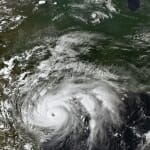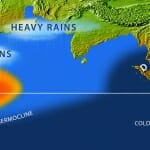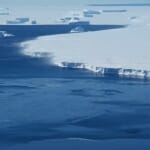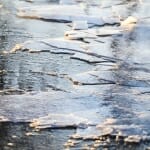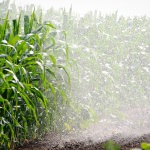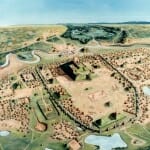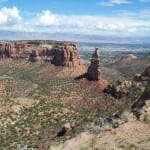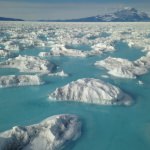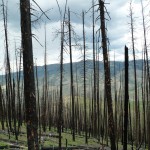Tag Climate change
Long-term data show hurricanes are getting stronger
In almost every region of the world where hurricanes form, their maximum sustained winds are getting stronger. A warming planet may be fueling the increase. Read More
Governor issues proclamation in honor of the Nelson Institute’s 50th anniversary
The institute, named for former governor, senator and Earth Day founder Gaylord Nelson, has worked to provide scientifically sound research on environmental challenges since 1970. Read More
Warming oceans could cause Antarctic Ice Sheet collapse, sea level rise
A new study found that warming below the surface of the planet’s oceans is a significant contributor to ice sheet melt, particularly in the Antarctic, where a large portion of the ice sheet exists under the water. Read More
Wisconsin Initiative on Climate Change Impacts revived under Governor’s task force
WICCI will contribute climate data informing the work of a state panel charged with advising Wisconsin Gov. Tony Evers on climate change adaptation and mitigation. Read More
Climate change impacts Wisconsin’s inland lakes
The UW Water Resources Institute studied the effect on lake levels, water quality, aquatic invasive species and fisheries for 15,000 of the state's "true water treasures." Read More
Irrigated farming in Wisconsin’s Central Sands cools the region’s climate
Irrigation dropped maximum temperatures by one to three degrees Fahrenheit on average while increasing minimum temperatures up to four degrees compared to unirrigated farms or forests, research shows. Read More
Wood products mitigate less than 1 percent of global carbon emissions
"It's not just about lowering our emissions but pursuing strategies that might have storage potential, and harvested wood products are one of those options,” says researcher Craig Johnston. Read More
UW–Madison researcher awarded “Make Our Planet Great Again” grant
Professor Carol E. Lee has just been awarded a grant from the French government to investigate the ability of plankton to evolve and adapt to a changing climate. Read More
Ancient poop helps show climate change contributed to fall of Cahokia
A study provides a direct link between changes in Cahokia’s population size as measured through a unique fecal record and environmental data showing evidence of drought and flood. Read More
Reddit competes to visualize Madison’s prized Lake Mendota ice data
Data visualizations generated by a Reddit competition reveal a concerning trend that’s been known to scientists at UW–Madison and elsewhere for decades: ice is disappearing on Lake Mendota. Read More
As the climate warms, tens of thousands of lakes may spend winters ice free
A new study from an international team of researchers, including at UW–Madison, shows that many northern latitude lakes are at risk of experiencing some ice-free winters in the coming decades. Read More
Professor takes on climate change by promoting science literacy through music, art, comics
A UW–Madison geoscience professor has come up with new ways to teach science to non-science undergraduate students, in hopes of awakening their "inner scientists." Read More
A warming climate means profound changes for U.S. National Parks
The analysis of all 417 of America’s national parks, conducted by UW–Madison’s Center for Climatic Research, found that average temperatures increased at twice the rate as the rest of the nation over the past century. Read More
Ancient farmers spared us from glaciers but profoundly changed Earth’s climate
Ancient farming practices led to a rise in the atmospheric emission of the heat-trapping gases carbon dioxide and methane – a rise that has continued since, unlike the trend at any other time in Earth’s geologic history, according to new UW–Madison research. Read More
Is fire the new normal in the American West?
In a video, Professor Monica Turner and her research team and colleagues explore how the patterns of fire and recovery are changing, particularly as the climate warms and drought becomes more common. Read More

